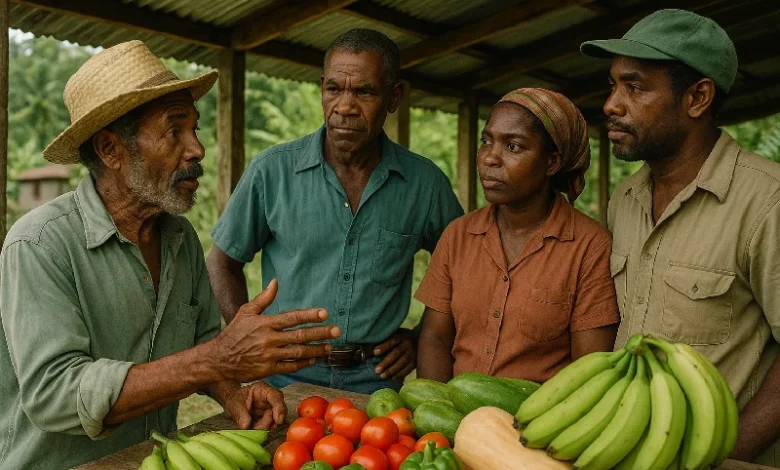Dominica Agricultural Society (DAS)

The Dominica Agricultural Society (DAS) has historically played a central role in shaping the island’s agricultural identity. Established as a national platform for promoting best practices, coordinating farmer interests, and influencing policy, the DAS functioned throughout much of the 20th century as a leading advocate for Dominica’s rural economy. The society served as a conduit between farmers and the government, particularly during the colonial and post-independence transition, helping to organise events, workshops, and demonstrations that aimed to elevate local production standards.
Institutional Influence and Leadership
Among its notable leaders was Ralph Stanley Fadelle, who served as Chairman during a pivotal era. Under his leadership, the Society advocated for the modernisation of farming methods, soil conservation, and the commercial expansion of crops like bananas, citrus, and root vegetables. The DAS operated as a key stakeholder in agricultural dialogue with the Ministry of Agriculture, often weighing in on policy direction, food security strategy, and rural land use planning. It maintained working relationships with international partners and technical agencies, ensuring that Dominican farmers had access to knowledge, tools, and export pathways.
National Role in Agricultural Development
The DAS was instrumental in organising national agricultural exhibitions, farmer competitions, and model farm trials. These events helped spread innovations in poultry farming, agro-processing, and fruit orchard development. Through its coordination with farmer cooperatives and regional organisations, the Society reinforced national priorities in sustainable agriculture, food sovereignty, and land stewardship. It provided a structured platform where both large estate owners and smallholder farmers could share experiences and lobby collectively.
Legacy and Contemporary Relevance
While the formal activities of the Dominica Agricultural Society have become less visible in recent years, its historical contributions remain embedded in the country’s farming landscape. Many of the Society’s former programmes were precursors to initiatives later adopted by entities like the Dominica Export Import Agency (DEXIA) and the Division of Agriculture. Its emphasis on community-driven progress and environmental stewardship continues to inform public discourse around agricultural resilience in the face of climate change.




